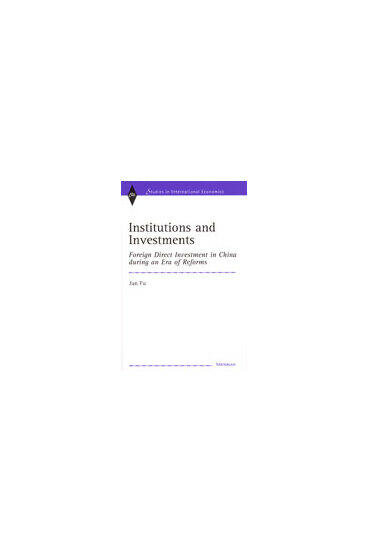Institutions and Investments
Foreign Direct Investment in China during an Era of Reforms
Provides an in-depth look at how China's financial institutions interact with foreign investment
Description
As China continues to be heralded as a rising economic power, the need for an understanding of its institutional effects--such as investment-related policies, regulations, and laws--on foreign direct investment increases as well. Institutions and Investments employs interdisciplinary perspectives from economics, business, law, and political science to shed light on the interaction between institutional changes and investment patterns and to form a clear picture of investment behavior as China's legal and regulatory infrastructure has developed over the reform years.
Organized into three main parts, the book first discusses the evolution and nature of China's FDI regulatory framework. Part 2 examines the various modes and variant patterns of FDI in China in the reform years. Part 3's central task is to demonstrate a systematic link between institutional changes in China's FDI regulatory framework and the changing patterns of FDI. In conclusion, Jun Fu finds that China has made substantial progress from a command economy to a market system, but that it still has a long way to go before it truly attains a transparent and rule-based system.
This book adds new dimensions to the scholarship on China as a growing economic power and will be of particular interest to international economists, political scientists, and business scholars studying China.
Jun Fu is Associate Professor in the School of Economics and Management, Tsinghua University.
Jun Fu is Associate Professor in the School of Economics and Management, Tsinghua University.

